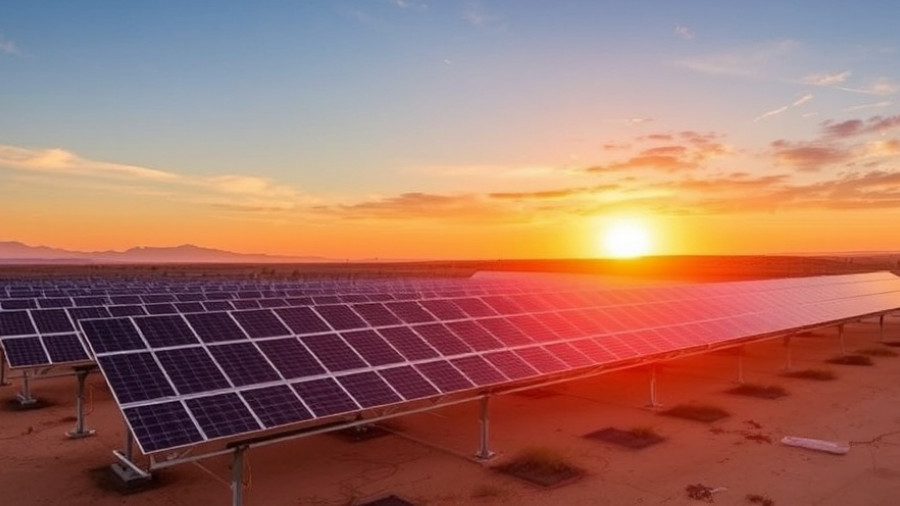
The Impending Solar Surge: Analyzing a $165 Million Investment
In an environment where energy demands are soaring and sustainability is becoming non-negotiable, the recent $165 million investment from Copenhagen Infrastructure Partners into Ampliform—a joint venture aimed at boosting solar power—emerges as a beacon of progress. Despite the tremors of partisan politics affecting U.S. energy policy, the fundamentals of solar power remain robust, driven by economic necessity and environmental urgency.
Evaluating the Influence of Policy on Renewable Energy
The U.S. solar market is buoyed significantly by federal and state-level policies, such as the Investment Tax Credit (ITC) and various state incentives that encourage solar adoption. This financial backing plays a crucial role in boosting investor confidence and accelerating project developments like those of Ampliform, which initially tapped into a favorable policy environment in 2022, post the Bipartisan Infrastructure Law and the Inflation Reduction Act.
Grasping the Economic Importance of Solar Power
As energy prices climb—averaging a 26% increase for residential customers from 2019 to 2024—the economic case for solar becomes irresistibly compelling. Research from Deloitte suggests that the U.S. power sector must engage in $1.4 trillion worth of investments from 2025 to 2030 to address the increasing electricity demand—an endeavor where solar solutions can contribute significantly to easing financial burdens and providing stable energy shifts.
Job Creation: A Multi-Dimensional Benefit
The unfolding solar industry also presents formidable job creation opportunities, from installation technicians to engineers. This job boom is critical as it counters potential downturns in other sectors affected by economic fluctuations. By fostering a diverse range of employment in the renewable sphere, the sector not only aids economic recovery but enhances national resilience against economic shocks.
Technological Innovation: The Backbone of Accelerated Adoption
Accelerating solar tech advancements further underpin growth in the solar market. With innovations yielding cheaper production and more efficient energy generation, technologies significantly enhance the feasibility of solar installations across various applications. As observed in Ampliform's initiative, strategic investments in energy storage and smart grid technologies signify a pivot towards an innovation-driven energy future.
Environmental Benefits: Beyond Economic Concerns
The intrinsic environmental advantages of solar energy can't be overstated. Solar power mitigates the carbon footprint of energy consumption significantly—an essential factor as the U.S. commits to fighting climate change. By transitioning to renewables, the nation makes strides toward its sustainability goals while simultaneously enhancing energy security.
The Road Ahead: Preparing for a Clean Energy Transformation
As Ampliform gears up to commence construction on its $165 million-backed projects, the ramifications are set to be felt beyond immediate energy production. The strengthened policies, economic fundamentals, and diminishing solar costs collectively lay the groundwork for sustainable growth in solar investments. By prioritizing infrastructure modernization and broadening access to solar innovation, stakeholders can ensure that the U.S. remains a leader in the global energy transition.
As we witness these evolving dynamics in the solar sector, it's clear that embracing clean energy can shift both the economic outlook and the environmental trajectory for generations to come. It’s an ecosystem ripe for investment, and all eyes now focus on these new solar ventures and their capacity to reshape renewable energy landscapes.
 Add Row
Add Row  Add
Add 




Write A Comment